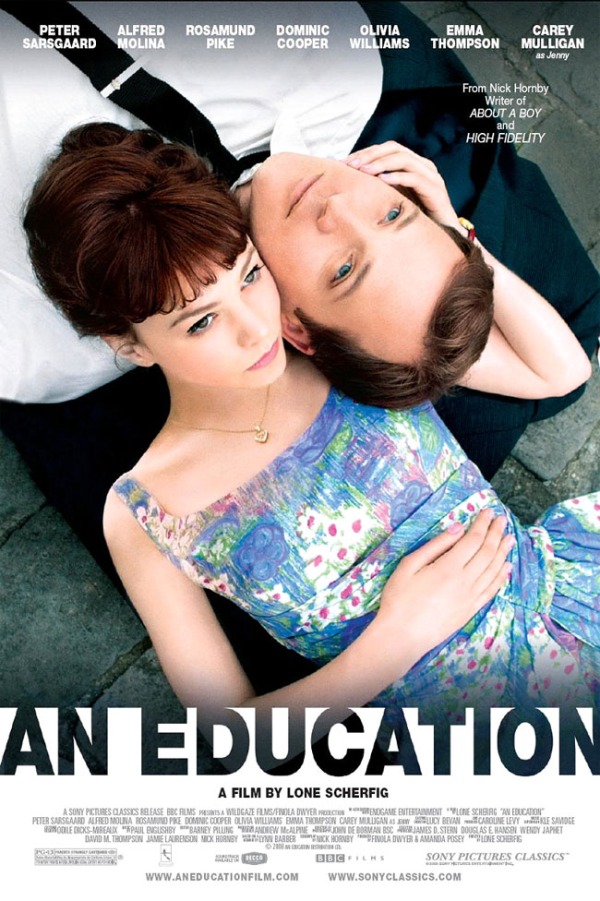Richard Weaver wrote, “Ideas have consequences.” GK Chesterton once said (and I paraphrase), “There is a thought that brings all thought to an end.” Christopher Nolan’s “Inception” is a mind-bending trip through dream world upon dream world upon dream world, exploring the consequences of ideas and the power of ideas to bring our world(s) to an end.
The prime example is Solomon. Being forced to choose between two woman who both make claim to the same baby. Solomon needs wisdom to shed light in a situation where good and evil are not clearly in the light. Nolan’s films reveal characters thrust into those same murky places that confuse the mind. His characters need wisdom to know how to choose, how to act in the middle of the mess.
Ebert sees a connection between Inception and an earlier Nolan film, Memento. I agree. The story of Memento is told by a man with short term memory loss. His blind sight is our blind sight. At times, the film is disorienting as we try to make sense the story in his world. His body is covered in tattoos. Gradually, we realize that these tattoos are his memory. It is not until the end of the movie that we understand the story we’re in.
The premise of the film rests on the idea that we can enter into another person’s dreams and learn ways to extract their secrets or even suggest new ideas. This is not the simple dream combat of Dreamscape from the early 80s. This dream tinkering requires a team of professionals: an architect to build the world, a druggist to control the dream state, a forger who is a master of becoming other people in dreams, a researcher who prepares the details, and of course the action man who steals the idea or in this film attempts to plant an idea.
In the movie, they created symbolic worlds or worlds that carried and expressed meaning, even hidden meaning within a person’s soul. Our dream worlds are filled with all sorts of fascinating images and structures and people. Memory and meaning are blended in fantasy where it is difficult to discern what really real or true. But this isn’t just our dream world. In our waking world, we face the same challenge to discern the real from the unreal.
In this film, Cobb (Leonardo DiCaprio) is trying to plant an idea in a man’s mind through his dreams. He knows this can be done because he has done it before with disastrous effects. Cobb himself is a man tormented by the power of deception and guilt to twist the waking and dreaming mind into confusion and limbo.
In this film, we see how ideas can twist our perception and our ability to know the true from the false, the real from the unreal. We see how some ideas can lead to the distrust of every idea.
In his day Chesterton realized there were ideas being planted in people’s mind that would eventually spring up and cause men to question rationality itself. In other words, he saw the danger of some ideas that would lead us into such a state of confusion, we’d be trapped in a limbo.
These ideas were not planted through dreams because the real place of influence is not through our dreams but through our ears. Speech has the power to change the world. To create the world. False speech twists the world into a confusion between the real and the unreal.
Hitler built a world on speech that twisted the real and the unreal. This speech took form in bodies, buildings, books, tanks, and war. Augustine built a world on speech in submission to Christ. The words he speaks in “Confessions” and “The City of God” still resound and still take shape in lives, cities, and societies.
As a rhetorician, Augustine understood that speech touches to heart and the mind and the body. Classical rhetoric is about learning how to speak. Quintillion said that rhetoric is the “art of a good man speaking well.” Great rhetoric integrates the mind with the emotions and moves the body to act. What is often called rhetoric in our world today is simply a shell of what once was a great art, thus it is often seen as manipulative and dishonest.
As I watched Inception, I thought about the power of speech. I thought about how wrong ideas can cloud out ability to perceive our world. Our perception can be distorted by anger, hurt, pride, and self ambition. False words can cloud our ability to see what is really real. But I also thought about the power of true speech to rebuild a world that is crumbling.
Paul writes to a people in Corinth who are being seduced by an idea that suggests the physical world is unimportant and only the spiritual is of value. He sees the danger in this idea. He proclaims true speech over false speech. He challenges the distorting power of false ideas with the true idea. He proclaims gospel (good news). He proclaims resurrection: the bodily resurrection of Christ and the bodily resurrection of His people.


